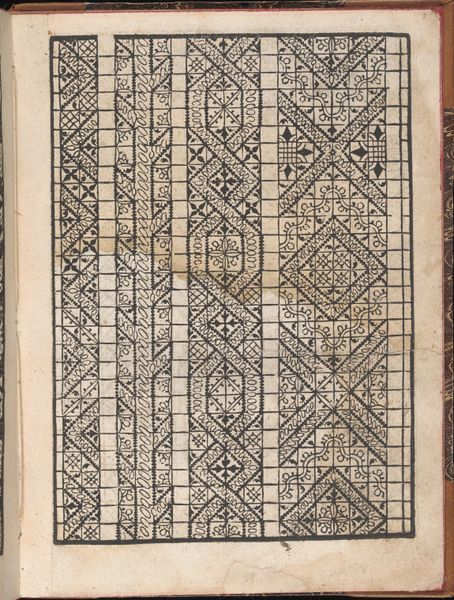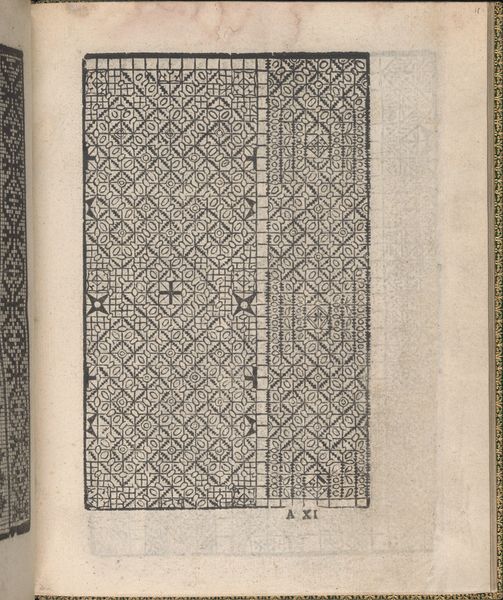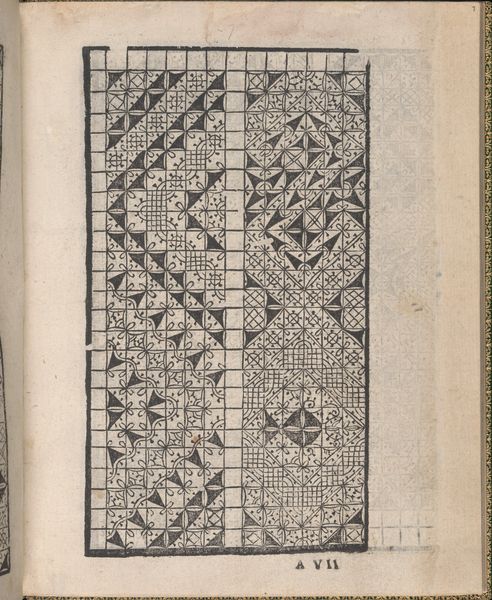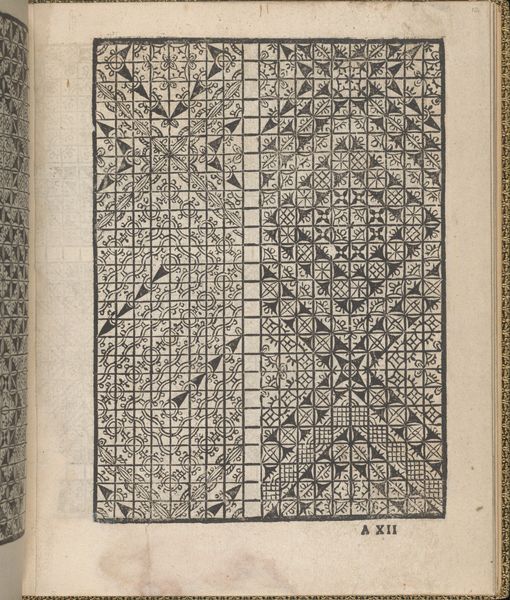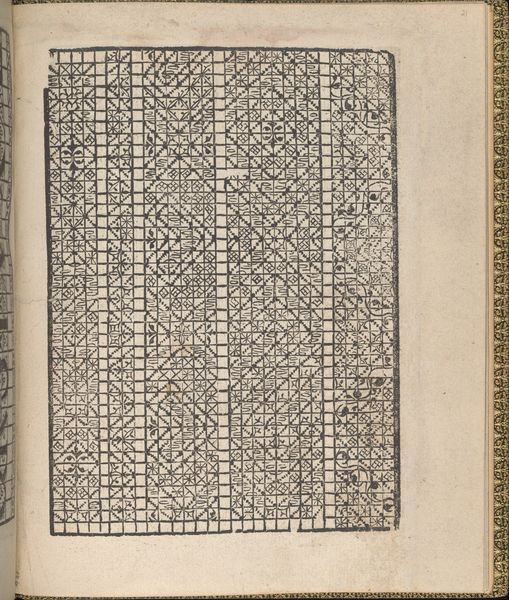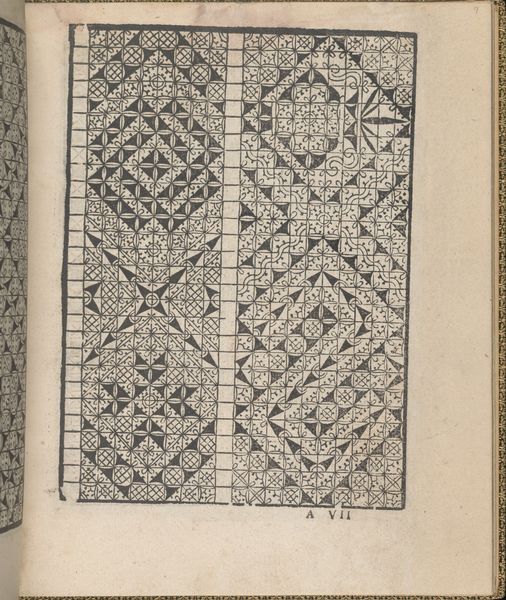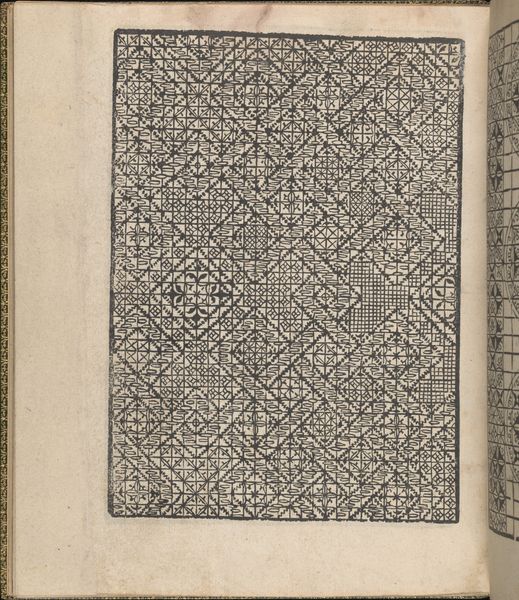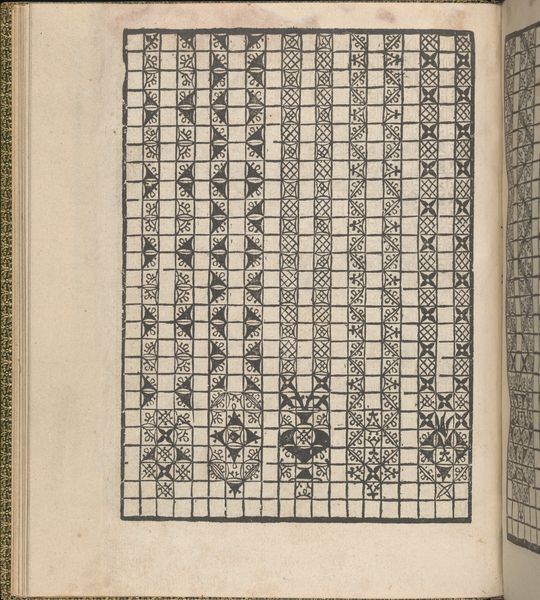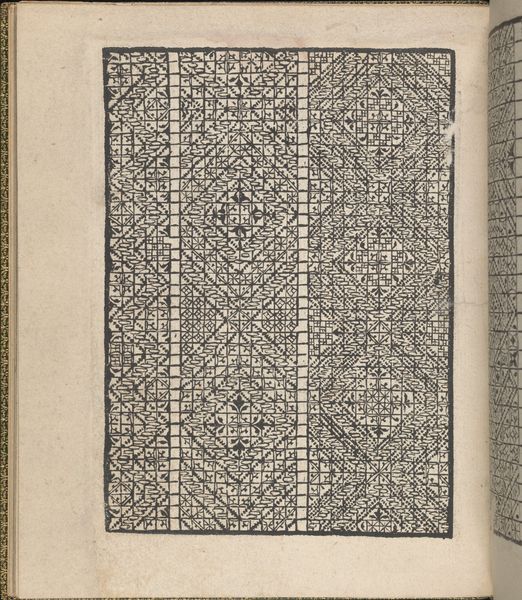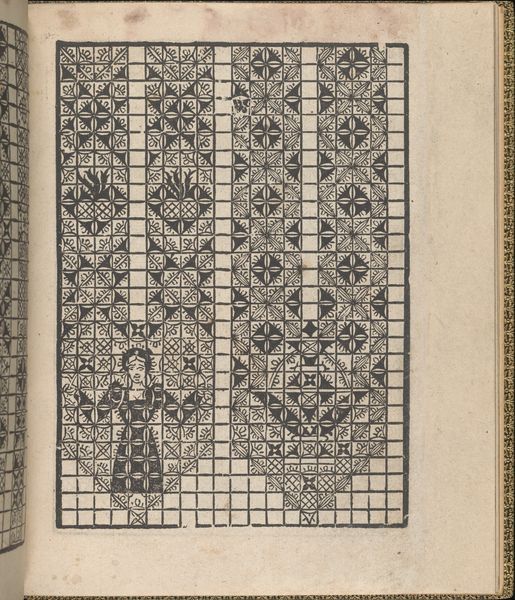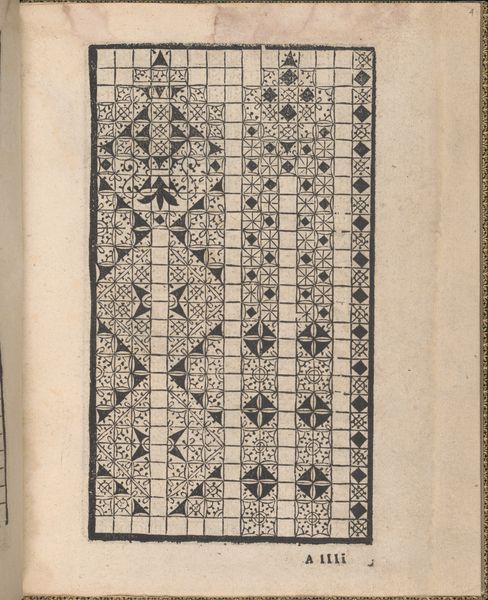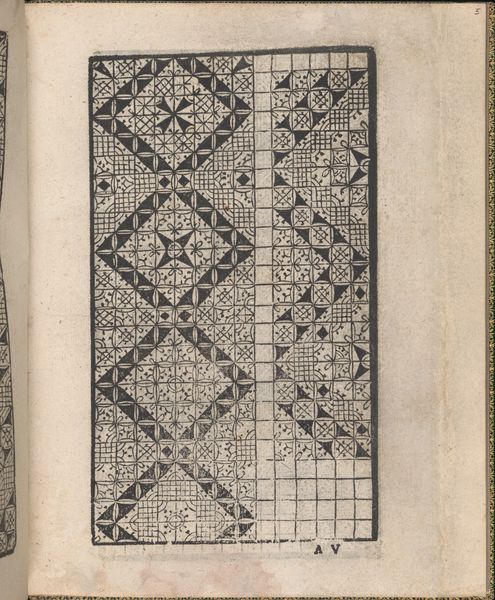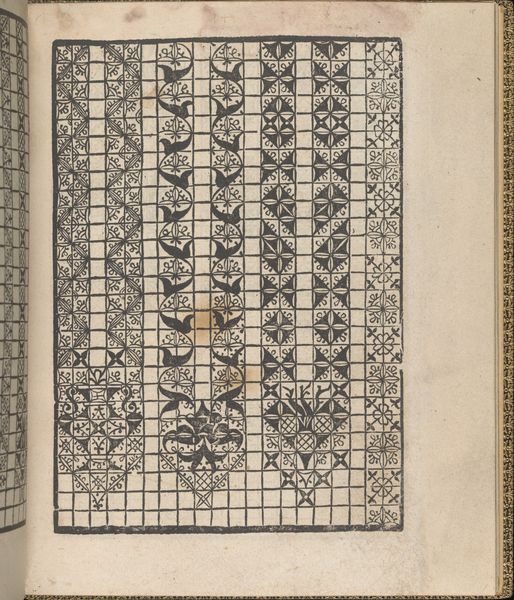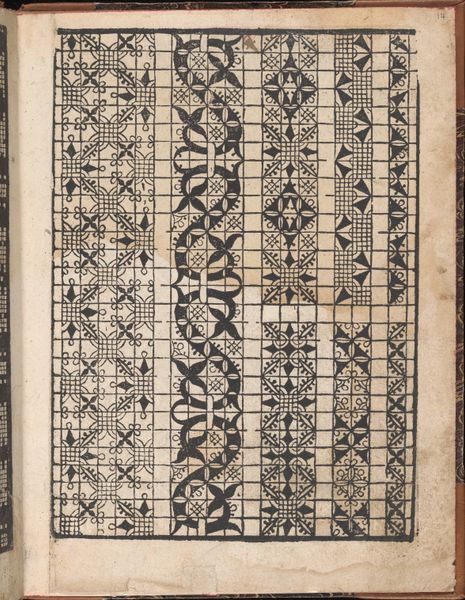
Giardineto novo di punti tagliati et gropposi per exercitio & ornamento delle donne (Venice 1554), page 12 (recto) 1554
0:00
0:00
drawing, print, woodcut
#
drawing
#
medieval
# print
#
11_renaissance
#
geometric
#
woodcut
#
line
#
decorative-art
Dimensions: 7-5/8 x 6-3/8 x 1/4 in. (19.4 x 16.2 x 0.6 cm)
Copyright: Public Domain
Editor: This page from "Giardineto novo di punti tagliati et gropposi per exercitio & ornamento delle donne," printed in Venice in 1554, is a striking display of geometric patterns rendered as a woodcut. The intricacy is fascinating! How do you interpret this work? Curator: Focusing solely on the formal elements, we observe a rigid grid structure that is subdivided into squares, each containing a unique, self-contained design. Note the high contrast achieved through the stark black lines against the off-white ground, creating a visually arresting composition. Editor: So the appeal lies within these shapes and contrast? Curator: Precisely. Observe the meticulous execution of the woodcut. The artist, Matteo Pagano, uses line variation strategically to suggest depth and texture within each miniature pattern. This creates a dynamic interplay between the overall grid and the individual elements, transforming a potentially monotonous layout into a vibrant visual field. What function might these serve? Editor: Well, given the title, perhaps to provide patterns? Curator: Exactly. We can interpret the repeated shapes through structuralism as a semiotic language of adornment. Consider also the materiality of the print, its scale designed for portability. This emphasizes its functionality as a disseminator of design ideas. Editor: That’s interesting, I never thought about the relationship between form and function here. Thank you! Curator: Indeed. This close reading of form helps unlock understanding beyond historical context, reinforcing its significance as an enduring visual statement.
Comments
No comments
Be the first to comment and join the conversation on the ultimate creative platform.
